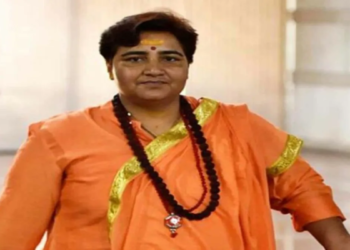Source: UN News: Friday, 25 July 2025 00:01 am
UNICEF is resorting to sports for the overall development of children in rural areas of Bihar. This is a kind of peaceful change in which the workers of the front row are being taught how to help families in the care and learning of children through sports. UNICEF is providing necessary resources and training to health workers, so that they can explain to families that even small things of everyday, can play an important role in the mental and social development of children. Through this initiative, a peaceful but revolutionary change has started in Dangraha Ghat village of Bice block of Purnia district of Bihar, Bihar’s Purnia district. This is not a major program or policy change – but there is a wave of change arising with laughter echoed in homes. 18 months old now splashes in water with her father, makes earthen pills, and laughing with her cousins Aamir and Almish. Till a few months ago, such a scene was rare. It was believed in communities here that toys mean plastic brought from the market. They did not know that household items like water, spoon and cloth could also become toys for children. But from September 2024, everything started changing, when Anganwadi worker Wajeda Tabassum and recognized social health worker Pinki Kumari, Pinki Kumari, participated in the Elementary Child Development (ECD)-backed children’s development (ECD) training. Were part of this training. This helped them to learn how important brain development is in the early years of the age of children – and how a affectionate game can give direction to life. © Unicef/Raghvendra Kumar. Before the new way of care, both activists used to work on newborn infants, children’s age growth monitoring and advice on breastfeeding – but their attention was limited to physical health only. Neither linguistic, social or sports development was identified, nor was he involved in mother or grandparents. (MCP) There are instruments like cards and new conscious pocketbooks – due to which they started explaining to families that touch, speaking and playing are as much as food and medicine. Said, “We are very busy.” Some said, “This is not all necessary.” But Wajeda and Pinky did not give up. By narrating stories, showing examples and repeatedly-they gradually changed the mindset of the people. Laughter returned in homes. Care became shared and inclusive – and above, the game was added to it. Pinky says, “Now we are proud – because children are making such children who are not only healthy, but are happy and smart.” © Unicef/Raghvendra Kumar initiative expands, this is not just the story of two women – it has become a movement. 650 trained workers and 40 supervisors are now providing integrated ECD services to about 10 thousand children in twenty -two blocks – ensuring that every household can reach early care and sports -based learning. And this is just the beginning. If we want every child to be happy and developed in Bihar and across the country, then ECD will have to be made part of every health and nutritional program. And the role of heroines like Pinky and Wajeeda becomes very important because when careful people have the right information, one spoon, a song, or a shared moment can also lay the foundation of a golden future.








